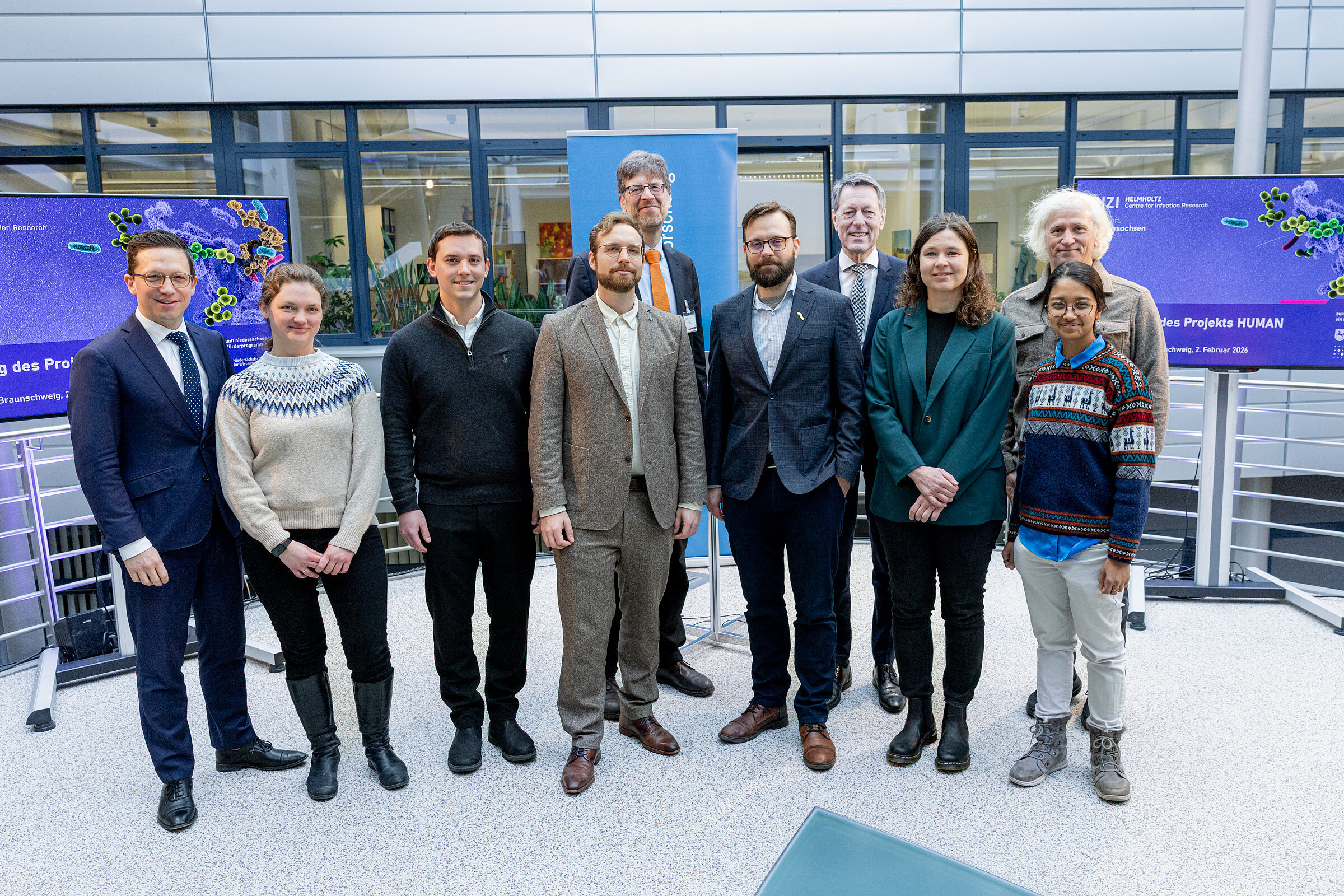Microbial Precision Genomics

Our Research
Microbes exist virtually everywhere on earth, including on and within humans, often in complex and dynamic communities. Under normal conditions, these communities might be beneficial for humans through mediating metabolic interactions, regulating host immunity, or by preventing infections with pathogens. Dysregulation of this complex interaction between microbes and the host, on the other hand, might contribute to disease. Microbial genomes are actively evolving on timescales relevant for human health, for example through horizontal gene transfer of antimicrobial resistance genes.
The mission of the “Precision Microbial Genomics” group is to acquire a mechanistic understanding of the variation and evolution of microbial genomes and how those are related to human disease. Towards this goal, we develop machine learning methods, innovative bioinformatics analysis approaches, and employ long-read metagenomic sequencing.
Understanding microbiome dynamics
The microbiome has been related to a large set of different diseases in humans, including colorectal cancer, inflammatory bowel disease, and even neurodegenerative diseases. The exact mechanisms underlying these associations are often unknown, though. One challenge is that many studies have used cross-sectional study designs, meaning they take a snapshot of the microbiome. This limits the conclusions that can be drawn from the data, as the dynamic nature of the microbiome is ignored. In recent years, more and more longitudinal microbiome studies have become available. These highly complex data come hand in hand with a need for novel bioinformatic tools and analysis approaches. Our group focuses on understanding microbiome dynamics more deeply, for example through quantifying strain replacement or prophage induction.
Quantifying microbial genome dynamics through long-read sequencing
Microbial genomes evolve on timescales that are clinically relevant, which is especially important when considering the dispersal of virulence factors or antimicrobial resistance genes. Most of our understanding of this evolution is based on measuring single nucleotide changes, as this type of variation is easiest to assess with common sequencing technologies. However, large structural variations, horizontal gene transfer, or infection with integrative phages are additional types of variation that have thus far been challenging to quantify. In recent years, long-read sequencing technologies have emerged, promising unrivaled power to uncover large structural variations in microbial genomes. Our group develops computational tools for the analysis of long-read metagenomic data to uncover the modes of evolution of human-associated microbes and to quantify horizontal gene transfer in complex microbial communities.
Our Research
Microbes exist virtually everywhere on earth, including on and within humans, often in complex and dynamic communities. Under normal conditions, these communities might be beneficial for humans through mediating metabolic interactions, regulating host immunity, or by preventing infections with pathogens. Dysregulation of this complex interaction between microbes and the host, on the other hand, might contribute to disease. Microbial genomes are actively evolving on timescales relevant for human health, for example through horizontal gene transfer of antimicrobial resistance genes.
The mission of the “Precision Microbial Genomics” group is to acquire a mechanistic understanding of the variation and evolution of microbial genomes and how those are related to human disease. Towards this goal, we develop machine learning methods, innovative bioinformatics analysis approaches, and employ long-read metagenomic sequencing.
Understanding microbiome dynamics
The microbiome has been related to a large set of different diseases in humans, including colorectal cancer, inflammatory bowel disease, and even neurodegenerative diseases. The exact mechanisms underlying these associations are often unknown, though. One challenge is that many studies have used cross-sectional study designs, meaning they take a snapshot of the microbiome. This limits the conclusions that can be drawn from the data, as the dynamic nature of the microbiome is ignored. In recent years, more and more longitudinal microbiome studies have become available. These highly complex data come hand in hand with a need for novel bioinformatic tools and analysis approaches. Our group focuses on understanding microbiome dynamics more deeply, for example through quantifying strain replacement or prophage induction.
Quantifying microbial genome dynamics through long-read sequencing
Microbial genomes evolve on timescales that are clinically relevant, which is especially important when considering the dispersal of virulence factors or antimicrobial resistance genes. Most of our understanding of this evolution is based on measuring single nucleotide changes, as this type of variation is easiest to assess with common sequencing technologies. However, large structural variations, horizontal gene transfer, or infection with integrative phages are additional types of variation that have thus far been challenging to quantify. In recent years, long-read sequencing technologies have emerged, promising unrivaled power to uncover large structural variations in microbial genomes. Our group develops computational tools for the analysis of long-read metagenomic data to uncover the modes of evolution of human-associated microbes and to quantify horizontal gene transfer in complex microbial communities.
Dr Jakob Wirbel
One might think that bacteria are the simplest form of life, but their genomes are surprisingly complex and endlessly fascinating.

Jakob Wirbel studied molecular biotechnology at the Ruprecht Karl University of Heidelberg. After completing his Master of Science in the laboratory of Julio Saez-Rodriguez, he joined the group of Georg Zeller at the European Molecular Biology Laboratory for his doctoral studies, focusing on machine learning and statistical methods for microbiome data. He then moved to the lab of Ami Bhatt at Stanford University, supported by a fellowship of the Damon Runyon Cancer Research Foundation, where he was introduced to long-read metagenomic sequencing. At HZI, Jakob Wirbel is heading the junior research group “Precision Microbial Genomics” in the HUMAN program.
Team


Selected Publications
- Wirbel, J., Hickey, A.S., Chang, D. et al. Long-read metagenomics reveals phage dynamics in the human gut microbiome. Nature (2025) DOI: 10.1038/s41586-025-09786-2
- Wirbel, J., Pyl, P.T., Kartal, E. et al. Meta-analysis of fecal metagenomes reveals global microbial signatures that are specific for colorectal cancer. Nature Medicine (2019) DOI: 10.1038/s41591-019-0406-6
- Wirbel, J., Zych, K., Essex, M. et al. Microbiome meta-analysis and cross-disease comparison enabled by the SIAMCAT machine learning toolbox. Genome Biology (2021) DOI: 10.1186/s13059-021-02306-1
- Wirbel, J., Andermann, T., Brooks, E. et al. Accurate prediction of absolute prokaryotic abundance from DNA concentration. Cell Reports Methods (2025) DOI: 10.1016/j.crmeth.2025.101030
- Maghini, D.G., Oduaran, O.H., Olubayo, L.A.I. et al. Expanding the human gut microbiome atlas of Africa. Nature (2025) DOI: 10.1038/s41586-024-08485-8
A complete list of publications can be found here.
Newsroom
Are you interested in a bachelor or master thesis? We are looking forward to your request!

